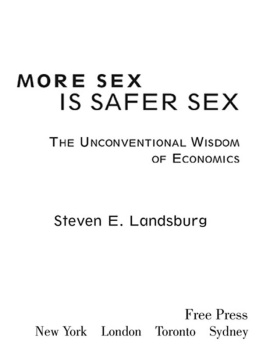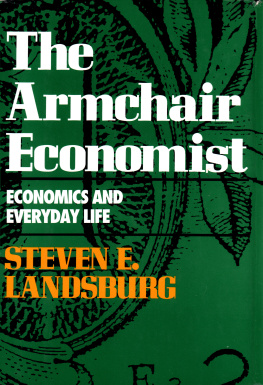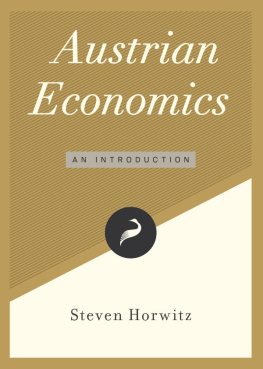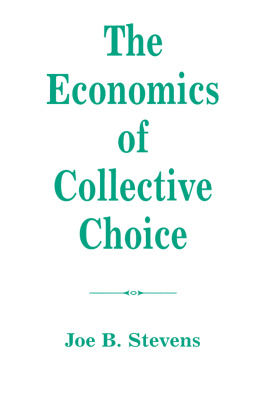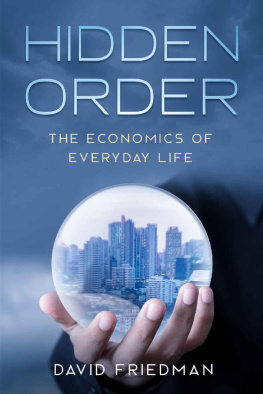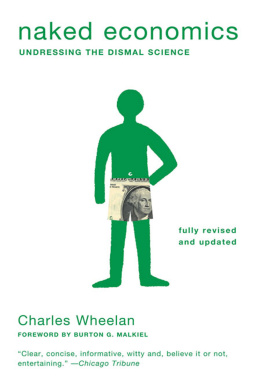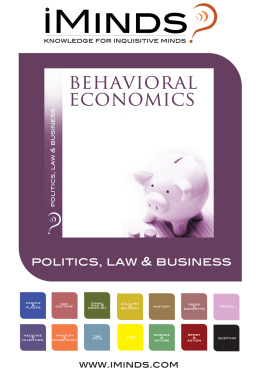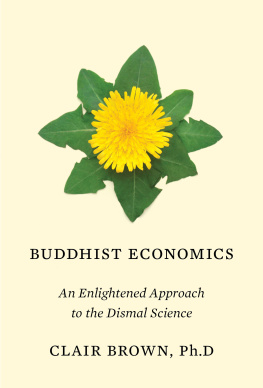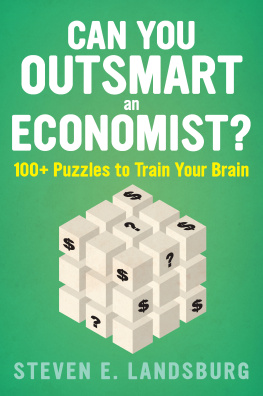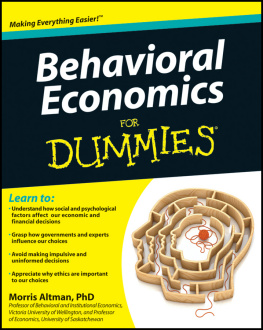Steven E. Landsburg - More sex is safer sex: the unconventional wisdom of economics
Here you can read online Steven E. Landsburg - More sex is safer sex: the unconventional wisdom of economics full text of the book (entire story) in english for free. Download pdf and epub, get meaning, cover and reviews about this ebook. year: 2014, publisher: Free Press, genre: Romance novel. Description of the work, (preface) as well as reviews are available. Best literature library LitArk.com created for fans of good reading and offers a wide selection of genres:
Romance novel
Science fiction
Adventure
Detective
Science
History
Home and family
Prose
Art
Politics
Computer
Non-fiction
Religion
Business
Children
Humor
Choose a favorite category and find really read worthwhile books. Enjoy immersion in the world of imagination, feel the emotions of the characters or learn something new for yourself, make an fascinating discovery.
- Book:More sex is safer sex: the unconventional wisdom of economics
- Author:
- Publisher:Free Press
- Genre:
- Year:2014
- Rating:3 / 5
- Favourites:Add to favourites
- Your mark:
More sex is safer sex: the unconventional wisdom of economics: summary, description and annotation
We offer to read an annotation, description, summary or preface (depends on what the author of the book "More sex is safer sex: the unconventional wisdom of economics" wrote himself). If you haven't found the necessary information about the book — write in the comments, we will try to find it.
Abstract: Steven Landsburgs writings are living proof that economics need not be the dismal science. Readers of The Armchair Economist and his columns in Slate magazine know that he can make economics not only fun but fascinating, as he searches for the reasons behind the odd facts we face in our daily lives. In More Sex Is Safer Sex, he brings his witty and razor-sharp analysis to the many ways that our individually rational decisions can combine into some truly weird collective results -- and he proposes hilarious and serious ways to fix just about everything. When you stand up at the ballpark in order to see better, you make a rational decision. When everyone else does it too, the results, of course, are lousy. But this is just the tip of the iceberg of individual sanity and collective madness. Did you know that some people may actually increase the spread of sexually transmitted diseases when they avoid casual sex Do you know why tall people earn more money than shorter competitors (Hint: it isnt just unfair, unconscious prejudice.) Do you know why it makes no sense for you to give charitable donations to more than one organization Landsburgs solutions to the many ways that modern life is unfair or inefficient are both jaw-dropping and maddeningly defensible. We should encourage people to cut in line at water fountains on hot days. We should let firefighters keep any property they rescue from burning houses. We should encourage more people to act like Scrooge, because misers are just as generous as philanthropists. Best of all are Landsburgs commonsense solutions to the political problems that plague our democracy. We should charge penalties to jurors if they convict a felon who is later exonerated. We should let everyone vote in two congressional districts: their own, and any other one of their choice. While were at it, we should redraw the districts according to the alphabetical lists of all voters, rather than by geography. We should pay FDA commissioners with shares of pharmaceutical company stocks, and pay our president with a diversified portfolio of real estate from across the country. Why do parents of sons stay married more often than parents who have only daughters Why does early motherhood not only correlate with lower income, but actually cause it Why do we execute murderers but not the authors of vicious computer viruses The lesson of this fascinating, fun, and endlessly provocative book is twofold: many apparently very odd behaviors have logical explanations, and many apparently logical behaviors make no sense whatsoever
Steven E. Landsburg: author's other books
Who wrote More sex is safer sex: the unconventional wisdom of economics? Find out the surname, the name of the author of the book and a list of all author's works by series.

